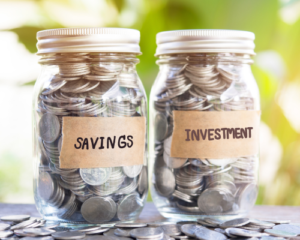What is the First Home Savings Account (FHSA)?
The First Home Savings Account is a type of registered savings plan for Canadians saving to buy their first home. Canadian residents aged 18 years or older can open an FHSA to save towards the purchase of a home in Canada.

You can contribute $8,000 annually up to $40,000 maximum cumulatively.
Contribution room carries forward to the next year if you don’t put in the full amount. Carry-forward amounts only start accumulating after you open an FHSA for the first time. The carry-forward room does not automatically start when you turn 18.
The FHSA is designed for first-time home buyers. This means that at the time the you withdraw money for a home purchase, you have not resided in a home you owned, in the previous four calendar years.
Where can you get an FHSA?
You can get an FHSA starting in 2023, from banks, credit unions, or any financial institution that issues Registered Retirement Savings Plans (RRSPs) and Tax-Free Savings Accounts (TFSAs).
What can go into an FHSA?
An FHSA can hold savings or investments. The same qualified investments that are allowed to be held in a TFSA can also be held in an FHSA. This could include mutual funds, bonds and GICs.
A TFSA can be used for any kind of savings goal, and also has an annual contribution limit that carries forward each year.
Are FHSA contributions tax deductible?
Contributions made to your First Home Savings Account (FHSA) are tax deductible. Claim your annual contributions on your tax return, and either reduce your tax owing or add to your refund at tax time.
If you transfer your FHSA into your RRSP, you cannot claim the transfer as a tax deduction.
What happens if you don’t buy a home?
If you decide not to use your FHSA contributions to purchase a home, you can transfer the savings into an RRSP or Registered Retirement Income Fund (RRIF) tax free. Otherwise, any withdrawals from your FHSA will be considered taxable income.
There are limits to how long you can keep your FHSA account. You must close your FHSA after you’ve had it for 15 years or by the end of the year you turn 71 — whichever comes first.
Can you have an FHSA at the same time as a TFSA and RRSP?
 Yes, you may hold an FHSA as well as a TFSA or RRSP (or all three) at the same time.
Yes, you may hold an FHSA as well as a TFSA or RRSP (or all three) at the same time.
The RRSP Home Buyers’ Plan allows you to withdraw up to $35,000 from your RRSP to help buy your first home. However, the amount you withdraw must be repaid to your RRSP within 15 years. And any withdrawals from your RRSP, that are not for your Home Buyers’ Plan, will be considered taxable income.
Your TFSA can be used for anything you want….retirement, renovations, a pool, a lamborghini— and withdrawals are not taxed as income.
An RRSP is primarily designed specifically for retirement savings. It offers other tax advantages, depending on your income level.
How does the FHSA compare to the RRSP Home Buyers’ Plan and a TFSA?
| FHSA | RRSP Home Buyers’Plan |
TFSA |
|
| Contributions are tax deductible | Yes | Yes | No |
| Withdrawals for home purchase are non-taxable | Yes | Yes | Yes |
| Annual contribution amount is tied to income level | No | Yes | No |
| Account can hold savings or investments | Yes | Yes | Yes |
| Unused annual contributions carry forward to the next year | Yes | Yes | Yes |
| For first-time home buyers only | Yes | Yes | No |
| Total contribution amount limit | $40,000 | $35,000 | Cumulative |
